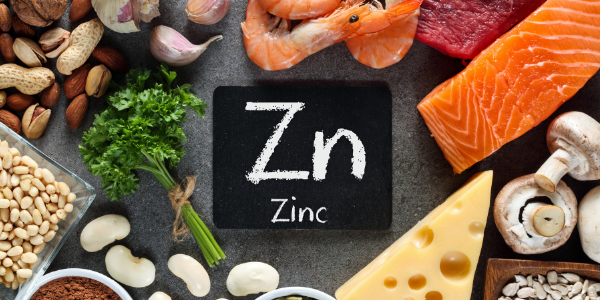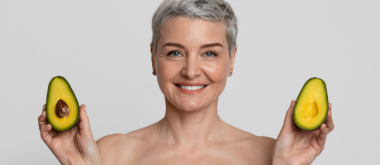Zinc is an essential dietary mineral found in cells throughout the body. The anti-aging benefits of zinc include reduction of hair loss and wrinkles.
Zinc is also a critical antioxidant. This means that it helps to protect cells from damage caused by certain cell functions involving oxygen. This damage, called oxidative stress, is linked to diseases of aging, such as cancer, dementia and diabetes.
The anti-aging benefits of zinc are thought to be closely linked to its ability to control and suppress chronic inflammation. Chronic inflammation isn’t the same as acute inflammation. When you cut yourself, the area around the cut will become red and swollen. This is a healthy inflammatory response that tells your body that a part of it has become damaged and needs repair. The cut heals, and the inflammation goes away. Chronic inflammation, however, isn’t healthy and may lead to a number of serious health conditions. Other anti-aging benefits of zinc are linked to its role in the function of the immune system:
- Diabetes
- Cancer
- Rheumatoid arthritis
- Psoriasis and psoriatic arthritis
- Heart disease
- Emphysema
- Dementia
 Anti-Aging Benefits of Zinc for Men
Anti-Aging Benefits of Zinc for Men
Zinc is important for male sexual function. It’s involved in the production of the primary male hormone, testosterone, and it is also required for the formation of prostatic fluid. It appears to be involved in the male sex drive as well. It may also help to combat ED, or erectile dysfunction. The recommended daily allowance of zinc for men is 11 milligrams. It may be taken in supplement form, but it’s also readily available in foods such as oysters, beef, chicken, tofu, pork, nuts, seeds, lentils, yogurt and oatmeal. Perhaps the high zinc content in oysters is the reason for their supposed effect as an aphrodisiac! Just six oysters contain over 50 milligrams of the mineral. There are 15 milligrams in a five-ounce serving of steak. Zinc is required for the normal function of the immune system, too.
Anti-Aging Benefits of Zinc for Women
Women need eight milligrams of zinc daily. This amount can easily be obtained from diet alone, but if diet isn’t enough, a supplement should be taken to ensure an adequate intake is maintained. Zinc is involved in the production of the primary female hormones, estrogen and progesterone. It helps to regulate the menstrual cycle, and it may boost female fertility. Low levels of zinc are associated with hair loss and wrinkles.
Zinc and the Aging Eyes
Zinc is also necessary for normal taste and smell. It’s involved in the production and maintenance of DNA, the human genetic code, which is the very basis for life. It may be involved in the prevention of age-related vision loss, such as age-related macular degeneration. This is a serious disease caused by a breakdown of the macula, which is the center portion of the retina in the eye. The macula is responsible for sharp central vision. When it malfunctions, the central vision is affected, sometimes severely. It has been described as looking through a doughnut hole, with the vision that should be present in the hole greatly diminished or even absent altogether. This makes activities such as reading, doing puzzles, watching television or even recognizing faces very difficult, if not impossible.
The breakdown of the macula is caused by the growth of abnormal blood vessels underneath it, which then break and bleed into the retina, causing inflammation and other damage. While there are some biologic treatments for age-related macular degeneration, it’s a disease best avoided in the first place. Zinc, along with vitamins C and E, lutein and copper have been shown to reduce the risk of vision loss in some forms of macular degeneration.
You can take advantage of the anti-aging benefits of zinc by ensuring that you get enough of this critical trace element each and every day. Use the information you have learned here today to keep your body healthy as you grow older.

 Anti-Aging Benefits of Zinc for Men
Anti-Aging Benefits of Zinc for Men



